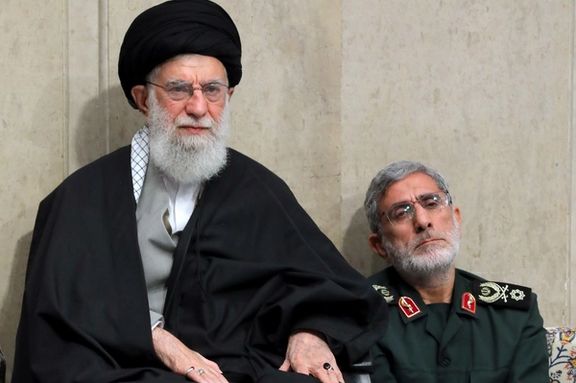IRGC secretly funds Al-Qaeda ops in Middle East: Report

Iran has secretly agreed to support Al-Qaeda fighters in Afghanistan and fund the group's operations in the Middle East, according to Afghanistan United Front (AUF), an opposition group.

Iran has secretly agreed to support Al-Qaeda fighters in Afghanistan and fund the group's operations in the Middle East, according to Afghanistan United Front (AUF), an opposition group.
The AUF’s report detailed an October 2021 meeting in Tehran, where IRGC Quds Force commander Esmail Qaani, Al-Qaeda leader Saif al-Adel, and a senior Taliban representative agreed on cooperation between Al-Qaeda and IRGC-affiliated groups in the Middle East and Africa. This marked the first recorded in-person meeting of these senior officials. The agreement involved the Taliban providing training space and tools for Al-Qaeda fighters in Afghanistan, while the IRGC covered their expenses and funded operations.
The alleged meeting took place just two months after the Taliban overran Afghanistan and the US hastily withdrew from the country after a 20-year military and political presence.
According to UAF, Qaani congratulated the Afghan Taliban and Al-Qaeda on their success in Afghanistan, stating, "We all have done a great job; now we need to chase the Americans out of the Middle East as well."
The report noted that the first important point they agreed on was that all Al-Qaeda branches, affiliate groups, and the IRGC in the Middle East and Africa would collaborate, with both sides working to broker peace among them.
“The first peace was brokered between the Houthis and Al-Qaeda in the Arabian Peninsula, which still holds, and coordination with Hezbollah and groups in Iraq and Syria is now operational" the report said. “The second point was that the Afghan Taliban should provide space and tools for training the Al-Qaeda fighting force."
“The last point was that the IRGC is willing to pay for all their expenses in Afghanistan and their overseas operations in the Middle East as well,” the document added.
The report by the AUF, led by Sami Sadat, former commander of the Afghan army's special forces and based in the US, sheds light on the funding and extensive cooperation between the IRGC, Al-Qaeda, and the Taliban, extending to the Arabian Peninsula. Previous reports have also revealed Iran's close ties with Al-Qaeda.
In February, the US State Department told Iran International that Tehran has permitted Al-Qaeda to facilitate terrorist activities and transfer funds and fighters since 2009 while also harboring its leaders within its borders.
In January 2021, then US Secretary of State Mike Pompeo publicly accused the Iranian government of permitting Al-Qaeda to establish a "new home base" within its borders, asserting that "Al-Qaeda today is operating under the hard shell of the Iranian regime's protection."
In February 2023, the UN reported that Seif al-Adel, the apparent new leader of Al-Qaeda, was residing in Iran, a claim later confirmed by US authorities.